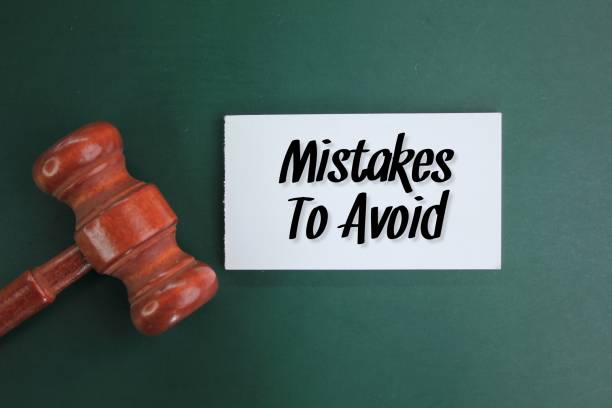Running a small business is exciting—but without the right legal protections in place, it can quickly turn risky. Many entrepreneurs focus on sales, marketing, and growth, but overlook critical legal steps that can make or break their business.
In this guide, we’ll highlight the top legal mistakes small business owners make, so you can avoid costly errors and build a solid foundation for long-term success.
1. Choosing the Wrong Business Structure
One of the first decisions you’ll make is how to legally structure your business—sole proprietorship, LLC, partnership, or corporation. Many small business owners default to a sole proprietorship for its simplicity, but that choice may expose you to personal liability.
Why it’s a mistake:
The wrong structure can result in higher taxes, limited growth opportunities, and lack of legal protection.
Tip:
Consult with a legal or tax professional to choose the best entity for your business goals.
2. Failing to Register the Business Properly
Some entrepreneurs skip registration, especially if they’re running small operations online or from home. But skipping formal registration can lead to penalties, missed tax benefits, and even legal disputes over your business name.
Why it’s a mistake:
Without proper registration, your business may not be recognized legally, leaving you vulnerable.
Tip:
Register your business name, obtain the necessary licenses, and comply with local, state, and federal regulations.
3. Not Having Written Contracts
Relying on verbal agreements or handshake deals is a major legal pitfall. Without written contracts, misunderstandings with clients, suppliers, or partners can lead to disputes that are hard to resolve.
Why it’s a mistake:
No written proof means no legal recourse if terms are violated.
Tip:
Use clear, legally binding contracts for every relationship—employees, vendors, freelancers, and customers.
4. Ignoring Employment Laws
Hiring your first employee is a big milestone—but it comes with legal responsibilities. From classification (employee vs. contractor) to wages, benefits, and termination rules, small businesses often violate labor laws unknowingly.
Why it’s a mistake:
Noncompliance can result in fines, lawsuits, and reputational damage.
Tip:
Know your responsibilities under labor laws. Create employee handbooks, keep payroll records, and classify workers correctly.
5. Skipping Intellectual Property Protection
Your logo, brand name, content, and product designs are all valuable assets—but only if they’re protected. Many small business owners delay registering trademarks, copyrights, or patents, leaving the door open for theft.
Why it’s a mistake:
Others can legally use or steal your branding if it’s not protected.
Tip:
Register trademarks early and use copyright notices. If you’ve developed a unique product or invention, consider applying for a patent.
6. Inadequate Insurance Coverage
Some businesses operate without proper insurance, thinking it’s unnecessary or too expensive. But just one lawsuit, accident, or data breach can wipe out your savings.
Why it’s a mistake:
Operating without liability, cyber, or property insurance puts your assets at risk.
Tip:
Get business insurance tailored to your needs. Common types include general liability, professional liability, and cyber liability insurance.
7. Neglecting Data Privacy Laws
In an increasingly digital world, handling customer data comes with strict legal obligations. Ignoring data privacy laws like GDPR or local consumer protection regulations can lead to major fines.
Why it’s a mistake:
Data breaches or unauthorized use of personal info can result in legal action and loss of trust.
Tip:
Have a clear privacy policy, secure your website, and ensure consent is obtained before collecting personal data.
8. Poor Record Keeping
Accurate and organized records are essential for taxes, audits, and legal disputes. Disorganized businesses often find themselves in trouble when asked to show proof of transactions or agreements.
Why it’s a mistake:
Lack of documentation can hurt your defense in legal or financial issues.
Tip:
Maintain records of all contracts, tax filings, licenses, and communications. Use cloud-based tools or bookkeeping software for easier management.
9. Not Planning for Partnership Disputes
Many businesses start with friends or family in partnerships but don’t clearly define roles or profit-sharing. Without a partnership agreement, things can quickly become complicated.
Why it’s a mistake:
Personal conflicts can derail the business or lead to legal action.
Tip:
Create a formal partnership or operating agreement that outlines responsibilities, ownership percentages, dispute resolution methods, and exit strategies.
10. Delaying Legal Help Until It’s Too Late
Many small business owners avoid hiring a lawyer to save money. But legal issues are often cheaper and easier to handle before they become lawsuits.
Why it’s a mistake:
Preventable problems can become expensive legal battles.
Tip:
Build a relationship with a business attorney. Get legal advice for contracts, compliance, and disputes before they escalate.
Final Thoughts
Legal mistakes are common in the early stages of entrepreneurship—but they’re also avoidable. By taking a proactive approach to your business’s legal framework, you protect yourself, your brand, and your long-term success.
Whether you’re launching a side hustle or scaling an established company, understanding these top legal mistakes small business owners make can help you stay compliant, confident, and focused on growth.
